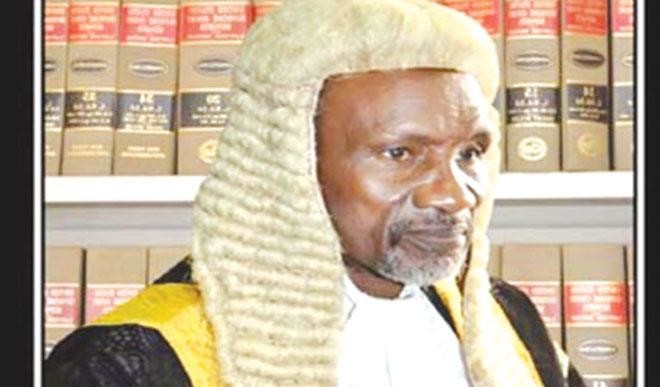That God may save Nigerian judiciary
Few weeks before the end of the year 2015, some political pundits in Nigeria made a series of analyses on the major events and institutions that could shape the then upcoming year in the country. Some of these analysts emphasized that 2016 would be the year of the Nigerian Judiciary. It would be a year, […]


Few weeks before the end of the year 2015, some political pundits in Nigeria made a series of analyses on the major events and institutions that could shape the then upcoming year in the country. Some of these analysts emphasized that 2016 would be the year of the Nigerian Judiciary. It would be a year, they said, that will serve as a litmus test for the Nigerian judicial arm of government as an institution that can self-reform not only under President Buhari but under a relatively new era ushered in by a critical election that swept away many of those who are seen to have dictated the course of judicial events in the country from 1999 to 2015.
Eight months into 2016, we can conclude from events that the judiciary has not lived up to expectation. President Buhari himself had said the judiciary so far was yet to perform its functions to the satisfaction of Nigerians.
With the remarkable progress made by the 2015 polls, the judiciary had the opportunity to end impunity, violence and rigging in our electoral system once.
But the number of reported scandals involving judges is a serious cause for worry.
Recently, courts were reported to have given seven conflicting judgements and rulings on the leadership saga of the People’s Democratic Party involving the two factions of Ali Modu Sheriff and Ahmed Makarfi.
The saga in Abia is the most recent example of how the judiciary is causing confusion and political instability. Though many judges still maintain their integrity due to their exceptional individual conducts, the integrity of the judiciary as a system has gradually eroded; the common man no longer sees it as his last hope, it is the special man that does.
The abuse and disregard for court orders by those in power may not be unconnected to the general degradation of judicial integrity. It seems, the judiciary can no longer assert its full authority to protect itself from the incessant abuse of court orders by the executive and powerful individuals because it commands little respect in the eyes of many. These are some of the things the National Judicial Council must look into and address. The allegations that corruption has eaten deep into the court registries and judicial administrative systems must also be addressed. The reported cases of alleged bribery and corruption among courts’ registrars, staff and officers who frustrate the smooth administration of justice must also be investigated and dealt with.
The problems are getting more and more complex by the day and some of them look to be almost beyond redemption, so the only action left for us besides continuing to press for genuine reforms is to pray to God to save the Nigerian judiciary.
Amir Abdulazeez can be reached via; Twitter: @AmirAbdulazeez
